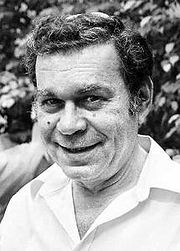Цитата Дэна Липински
С ростом населения США, особенно в городских районах, проблемы с транспортом будут становиться все более частыми и серьезными.
Связанные цитаты
Заставьте узкие места работать только над тем, что будет способствовать пропускной способности сегодня, а не через девять месяцев. Это один из способов увеличить пропускную способность узких мест. Другой способ увеличить пропускную способность узких мест — снять часть нагрузки с узких мест и передать ее неузким местам.
Я думаю, что верно то, что в Соединенных Штатах существовало основное разделение. Отчасти это связано с тем фактом, что экономический рост и восстановление, как правило, выше в городах и городских районах. В некоторых сельских районах, особенно в тех, которые зависели от производства, наблюдался более слабый рост, стагнация, люди чувствовали, что их дети не будут так же хороши, как они.
Каждый могущественный игрок или коалиция игроков пойдет на уступки в областях, где для него ставки относительно меньшие, в обмен на то, что другие такие же игроки пойдут на взаимные уступки в других областях, где для него ставки относительно больше. Такие сделки коллективно рациональны, поскольку они дают каждому из могущественных игроков больше того, что он хочет. Но такие сделки также опасны, потому что вся международная система правил станет непоследовательной и, следовательно, уязвимой для кризисов, которые будут становиться все более серьезными.
С 2008 по 2016 год весь рост американской экономики, весь рост национального дохода был заработан только самыми богатыми 5% населения. Вот они и получили весь рост. 95% населения не выросло. Если вы сможете получить фиксированный налог или другой более низкий налог, как предлагает Трамп, то эти самые богатые 5% смогут сохранить еще больше денег. Это означает, что 95% будут еще беднее, чем были раньше, по отношению к самому верху.
Существует достаточно полномочий, с помощью которых можно было бы регулировать рост населения ... Был сделан вывод, что законы об обязательном контроле численности населения, даже включая законы, требующие обязательного аборта, могли бы поддерживаться в соответствии с существующей Конституцией, если бы демографический кризис стал достаточно серьезным, чтобы поставить под угрозу общество. .
Рост, рост, рост — вот и все, что мы знали. . . Мировое производство автомобилей удваивается каждые 10 лет; рост человеческой популяции не похож ни на что, случавшееся за всю геологическую историю. Мир потерпит только такое количество удвоений чего бы то ни было — будь то электростанции или кузнечики.

































